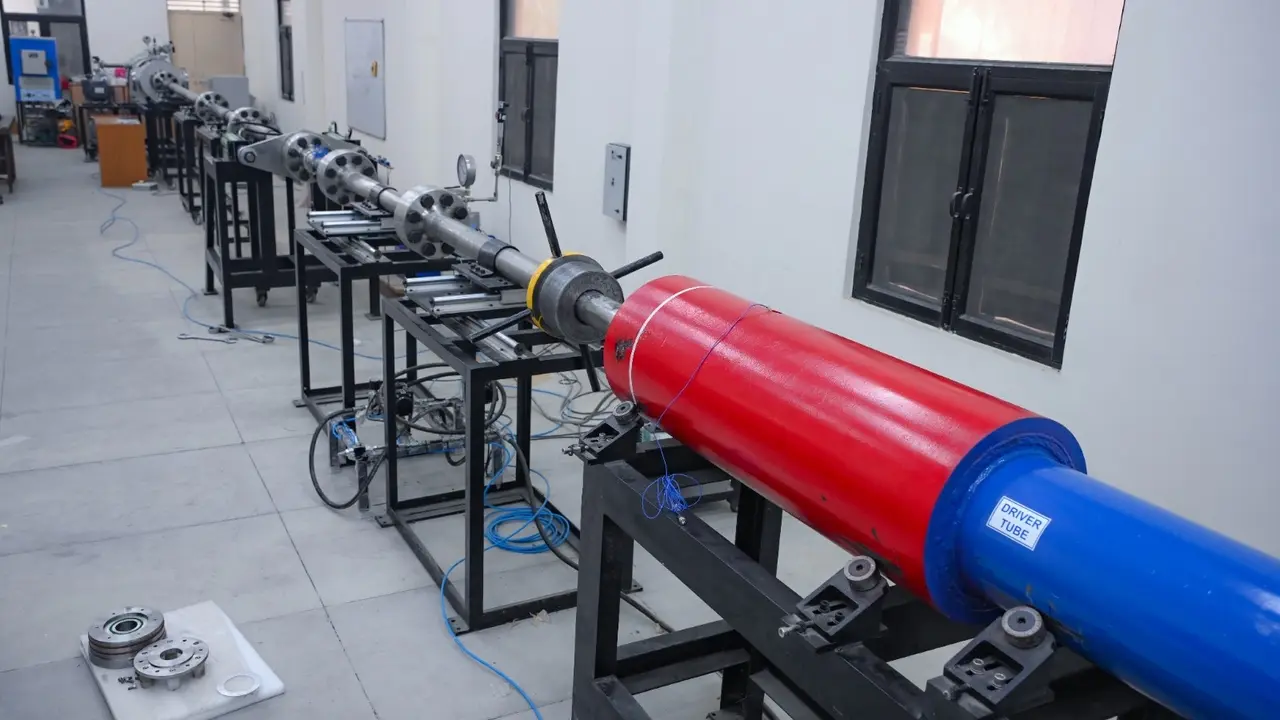Updated 6 February 2024 at 09:53 IST
IIT Kanpur achieves major milestone with India's First Hypervelocity Expansion Tunnel Test Facility
IIT Kanpur has designed, developed, and tested India's first Hypervelocity Expansion Tunnel Test Facility, positioning the country among a select few nations.
- Education News
- 2 min read

In a groundbreaking achievement, the Indian Institute of Technology Kanpur (IITK) has successfully designed, developed, and tested India's first Hypervelocity Expansion Tunnel Test Facility, positioning the country among a select few nations with such advanced hypersonic testing capabilities. Named S2, the facility is capable of generating flight speeds ranging from 3 to 10 km/s, replicating the hypersonic conditions experienced during atmospheric entry of vehicles, asteroid entry, scramjet flights, and ballistic missiles.
Situated within IIT Kanpur's Hypersonic Experimental Aerodynamics Laboratory (HEAL) in the Department of Aerospace Engineering, the 24-meter-long S2 facility, affectionately nicknamed 'Jigarthanda,' was constructed over three years through funding and support from the Aeronautical Research and Development Board (ARDB), the Department of Science and Technology (DST), and IIT Kanpur.
The hypervelocity expansion tunnel's successful establishment marks a historic milestone for IIT Kanpur and significantly enhances India's scientific capabilities. Prof. S. Ganesh, Director of IIT Kanpur, congratulated Prof. Mohammed Ibrahim Sugarno and his team for their exemplary work in designing and fabricating this critical hypersonic research infrastructure. S2 is expected to play a crucial role in supporting ongoing missions of the Indian Space Research Organisation (ISRO) and the Defence Research and Development Organisation (DRDO), including Gaganyaan, Reusable Launch Vehicle (RLV), and hypersonic cruise missiles.
Prof. Sugarno, Associate Professor in the Department of Aerospace Engineering and Centre for Lasers & Photonics at IIT Kanpur, highlighted the challenges faced during the construction of S2, particularly in perfecting the 'free piston driver' system. Overcoming these challenges, the team successfully designed, built, and tested this unique facility, solidifying India's position in the global hypersonic research community.
Advertisement
Prof. Tarun Gupta, Dean of Research and Development at IIT Kanpur, acknowledged the institute's research excellence and expressed gratitude for the crucial support from ARDB and DST. Prof. G. M. Kamath, Head of the Department of Aerospace Engineering at IIT Kanpur, emphasized that S2 propels their research horizons, inspiring a new generation of aerospace enthusiasts and setting a new benchmark for hypervelocity research in India and beyond.
S2 represents a significant capacity boost for India's space and defence sectors, providing sophisticated hypervelocity testing capabilities domestically. This achievement positions India to develop advanced hypersonic technologies and systems, fostering innovation and exploration in the field of aerospace technology.
Advertisement
Published By : Nandini Verma
Published On: 6 February 2024 at 09:53 IST
